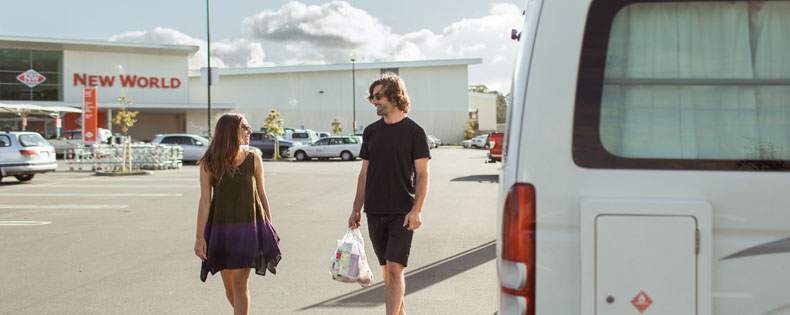Top tips to trade in or sell your Motorhome
Author: Malcolm Street Date Posted: 14 May 2018

When the time comes to upgrade, downsize or simply move on from the motorhoming lifestyle, the shoe will be on the other foot and you'll be the seller instead of the eager buyer. There are a number of things to consider when selling or trading in your old motorhome to make sure you can get as much return on your investment as possible.
Here are a few tips to help you get the most from selling your motorhome.
THINK ABOUT THE FUTURE
Believe it or not, this process really starts before you buy it in the first place.
Although we all have individual requirements for our own 'perfect' motorhome, it’s best to avoid anything that might be difficult to sell to someone else or at least minimise those factors. A simple example is colour schemes – most are fairly conservative but the choice of an interior decked out in lurid primary colours, for example, might be difficult to sell.
Another consideration is single beds. Whilst these are much more practical for many, there’s also a strong market preference for double beds and so a single-bed motorhome might be more difficult to sell. /p>
That said, preferences change and if contemplating a long ownership, as opposed to a short term 'quickie' around New Zealand, personal preferences count for more.
CREATURE COMFORTS MATTER
In any motorhome design, the popular 'essentials' should always be included. I heard of a more extreme example a few years ago in which the buyer, a long distance cyclist, bought a motorhome sans kitchen – a very difficult resell.
However, what the manufacturer did was build the interior in a modular fashion so that removing the bicycle storage and retro-fitting a kitchen was a very easy process and resulted in a much more sellable motorhome.
KEEP IT TIDY
During ownership it goes without saying that keeping your motorhome in as good order as possible is certainly the best way to retain its value. Of course there will be the normal wear and tear which can be remedied, but more serious problems such as water leaks are much easier to attend to sooner rather than later.
On the mechanical front, many a cab chassis might have a weakness that only shows up after a few years of use – staying on top of issues such as those is an excellent way to avoid substantial pre-sale expenses. Service records are always something that any keen buyer will want to inspect – so always keep them in a safe place. Similarly, and particularly with today’s sophisticated motorhomes, keep all the instruction manuals in a secure spot. This is not only for your use but for a future owner's.
PROPER GROOMING REQUIRED
Prior to the time of sale, there are plenty of things that can be done to ensure a good result. First impressions count and any prospective motorhome buyer will be affected by that, so ensuring the motorhome presents well is good thinking. That applies equally to any hard-eyed dealer looking over a possible trade-in.
Empty the motorhome of everything that won’t be included in the sale is the initial step. The next is a total clean, both inside and out. Of course a professional detailer will be the easiest route but it is, of course, much cheaper to do everything yourself. Make sure you brush up the upholstery, curtains and insect screens.
All motorhomes have a few rattles and squeaks which may just be annoying for you, but for the prospective buyer might well be a turn-off. Eliminating as many as possible is a smart move.
ALL SYSTEMS GO
If a motorhome has been left in storage for a considerable time, then it’s good get it out and give it a run to ensure all driver and road-going functions are working properly. Along those same lines, checking the appliances including the cooker, oven and fridge might mean the difference between a successful sale and a fail. Appliances can falter (it's usually rubber components such as seals) through a lack of use almost as much over-use.
Once you have cleaned the fridge out thoroughly, it's a good idea to leave it on to demonstrate its functionality. Likewise, all 12V devices including the battery should be tested and, where needed, charged up.
Pricing is always a tricky task to master, but spending time researching comparable models on the internet, in trade magazines and around the dealers will give you a very good idea of a ballpark figure.
Finally when a potential customer is coming to look, if it’s cold make sure the motorhome's interior is warm or, if it's a hot day, turn the air conditioner on. Try and be relaxed and let your immaculate motorhome sell itself. Good luck!






